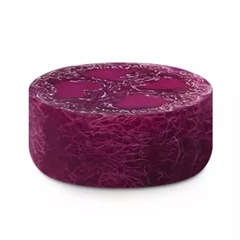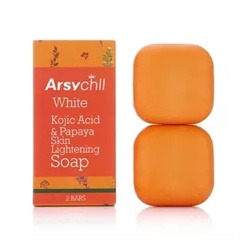Using soap safely can help you avoid common skin irritations and allergic reactions. Here are some soap safety tips to consider:
- Read the Ingredients List: Before using any soap, read the ingredients list on the packaging. Avoid products that contain ingredients you know you are sensitive or allergic to.
- Patch Test: If you’re trying a new soap or have sensitive skin, perform a patch test. Apply a small amount of the soap to a small area of your skin, such as your inner forearm, and wait 24 to 48 hours to see if any irritation or redness occurs.
- Choose Fragrance-Free: Fragrances can be a common cause of skin irritation and allergies. Opt for fragrance-free or unscented soaps, especially if you have sensitive skin.
- Avoid Harsh Ingredients: Look for soaps that are free of harsh detergents like sulfates and aggressive exfoliants. These ingredients can strip the skin’s natural oils and lead to dryness and irritation.
- Moisturizing Formulas: Consider using moisturizing soaps that contain ingredients like glycerin, shea butter, or coconut oil. These can help maintain your skin’s moisture barrier and prevent dryness.
- Gentle Cleansing: Use a gentle, mild soap that is designed for everyday use. Harsh soaps can disrupt the skin’s pH balance and cause irritation.
- Rinse Thoroughly: After using soap, make sure to rinse your skin thoroughly to remove all soap residue. Residue left on the skin can lead to irritation.
- Moderation: Avoid excessive use of soap, especially on sensitive areas. Over-cleansing can lead to dryness and irritation.
- Warm Water: Use lukewarm water when washing your skin with soap. Hot water can strip away natural oils and exacerbate dryness.
- Pat Dry: After washing, pat your skin dry gently with a clean towel. Avoid rubbing, as this can cause friction and irritation.
- Avoid Scrubbing: Be gentle when washing your skin. Avoid using harsh scrubbing tools or vigorous rubbing, as this can damage the skin’s protective barrier.
- Hydrate After Washing: After washing, apply a moisturizer to lock in hydration. This is particularly important if you’re using a soap that might strip away some natural oils.
- Know Your Allergies: If you have known allergies to certain ingredients, be vigilant about checking soap labels for those substances.
- Consult a Dermatologist: If you have chronic skin conditions, allergies, or a history of skin sensitivity, consider consulting a dermatologist before trying new soap products.
- Keep Your Soap Dry: To prevent the growth of bacteria and mold, keep your soap dry between uses. Use a soap dish that allows water to drain away from the soap.
Remember that individual skin sensitivities vary, so what works for one person might not work for another. If you experience persistent irritation or allergic reactions, discontinue use of the soap and seek advice from a dermatologist or healthcare professional.





































